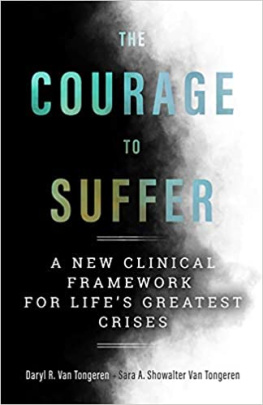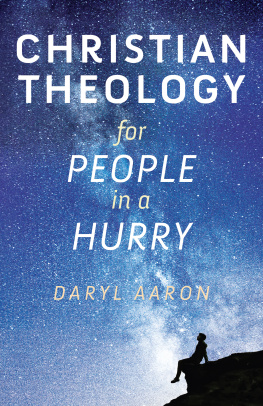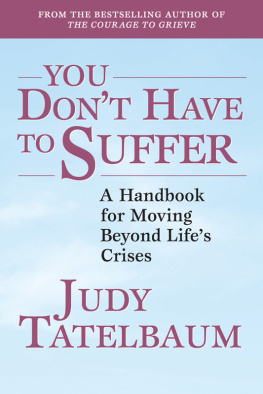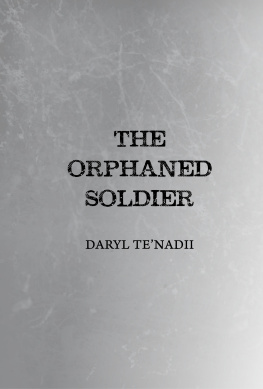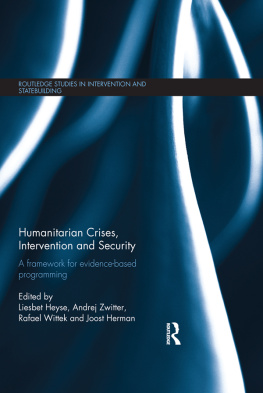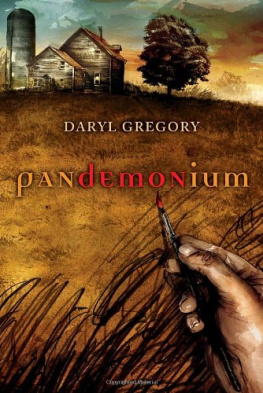Daryl R. Van Tongeren - The Courage to Suffer: A New Clinical Framework for Lifes Greatest Crises
Here you can read online Daryl R. Van Tongeren - The Courage to Suffer: A New Clinical Framework for Lifes Greatest Crises full text of the book (entire story) in english for free. Download pdf and epub, get meaning, cover and reviews about this ebook. year: 2020, publisher: Templeton Press, genre: Religion. Description of the work, (preface) as well as reviews are available. Best literature library LitArk.com created for fans of good reading and offers a wide selection of genres:
Romance novel
Science fiction
Adventure
Detective
Science
History
Home and family
Prose
Art
Politics
Computer
Non-fiction
Religion
Business
Children
Humor
Choose a favorite category and find really read worthwhile books. Enjoy immersion in the world of imagination, feel the emotions of the characters or learn something new for yourself, make an fascinating discovery.
- Book:The Courage to Suffer: A New Clinical Framework for Lifes Greatest Crises
- Author:
- Publisher:Templeton Press
- Genre:
- Year:2020
- Rating:4 / 5
- Favourites:Add to favourites
- Your mark:
- 80
- 1
- 2
- 3
- 4
- 5
The Courage to Suffer: A New Clinical Framework for Lifes Greatest Crises: summary, description and annotation
We offer to read an annotation, description, summary or preface (depends on what the author of the book "The Courage to Suffer: A New Clinical Framework for Lifes Greatest Crises" wrote himself). If you haven't found the necessary information about the book — write in the comments, we will try to find it.
The Courage to Suffer: A New Clinical Framework for Lifes Greatest Crises — read online for free the complete book (whole text) full work
Below is the text of the book, divided by pages. System saving the place of the last page read, allows you to conveniently read the book "The Courage to Suffer: A New Clinical Framework for Lifes Greatest Crises" online for free, without having to search again every time where you left off. Put a bookmark, and you can go to the page where you finished reading at any time.
Font size:
Interval:
Bookmark:

Templeton Press
300 Conshohocken State Road, Suite 500
West Conshohocken, PA 19428
www.templetonpress.org
2020 by Daryl R. Van Tongeren, PhD
and Sara A. Showalter Van Tongeren, LCSW
All rights reserved. This book may not be reproduced, in whole or in part, including illustrations, in any form (beyond that copying permitted by Sections 107 and 108 of the U.S. Copyright Law and except by reviewers for the public press), without written permission from the publishers.
Set in Albertina 10.7/15.6 by Gopa&Ted2, Inc.
Library of Congress Control Number: 2019951703
ISBN: 978-1-59947-524-0 (pbk: alk. paper)
ISBN: 978-1-59947-525-7 (ebook)
This paper meets the requirements of ANSI/NISO Z39.48-1992
(Permanence of Paper).
A catalogue record for this book is available from the Library of Congress.
20 21 22 23 24 10 9 8 7 6 5 4 3 2 1
Printed in the United States of America.
For Grace Anne
And to our clients and students who know loss intimately
and still demonstrate the courage to suffer.
You have taught us deep strength, and we have learned
what flourishing is because of you.
Contents
1 
An Existential Positive Psychology Framework
But there was no need to be ashamed of tears, for tears bore witness that a man had the greatest of courage, the courage to suffer.
VIKTOR E. FRANKL, Mans Search for Meaning
OUR LIVES have been profoundly shaped by suffering.
In early 2010, we were beginning to build our careers and felt the promise of a somewhat expected future. Sara, while completing her supervision hours toward her clinical license, was working with families of children with chronic and significant medical needs. Daryl was completing his fourth year of doctoral work and was in the thick of dissertation research studying how people find meaning in life, with hopes of going on the academic job market in the fall. We were feeling settled, so we started trying to get pregnant. And like most people, we didnt notice that life was going as planned.
Four months later, everything changed.
In April, we received a phone call that upended our world and irrevocably altered our lives. Daryls brother Tim underwent surgery that did not go as expected. We immediately flew to Colorado to be with family. Within a few short weeks, Tim died at age thirty-four, leaving his wife to raise their three young children under the age of six. Because of the genetic nature of Tims illness, there was a high likelihood that we would experience a similar fate as Tim and his wife. We were haunted by the existential question: Would Daryl develop the same condition that took Tims life? To compound our grief, one specialist stated that, given the genetic nature of Tims condition, we should not have children. It was one loss after another.
Years after this devastating blow to our dreams and our identity, we began to seek consultation and additional specialists opinions, who eventually gave us the green light to start a family. Our lost dream was given new hope. However, after almost two years of trying, we were told, with a sense of finality, that we would not be parents. Our infertility diagnosis further added to our grief, and our suffering was palpable. This pain and those experiences had become part of us and in many ways shaped us; how could we remove the pain or forget our experiences? We sought the help of friends and professionals, but the reality was we could not be unbroken. This was now our story.
THE NEED FOR A NEW APPROACH TO SUFFERING
As a professionally trained psychologist and clinical social worker, respectively, we challenged every cognitive distortion that we had: our life was over (catastrophizing), this is all our fault (personalizing), were inadequate (emotional reasoning), and we were still left with the simple fact that we would not be parents and that Daryls genetic future was unknown. However, our story was not a cognitive distortion; our suffering was not a set of irrational thoughts that needed to be corrected. No amount of therapeutic mental gymnastics could make us feel unbroken. We needed a new approacha completely different way to think about suffering that allowed us to hold the pain in authentic ways while desperately seeking to flourish.
Clinical work has long focused on alleviating suffering. However, not every therapeutic model is designed to help those in persistent, recurring, or unsolvable suffering. Many perspectives approach mental health concerns as discrete negative events that can be directly resolved through cognitive adaptation, emotion regulation, or behavioral modification strategies. Boiled down to its most basic level, many clinical approaches view suffering as a problem to be fixed, and then, once the symptoms subside, disregard the effect of the event itself. This strategy falls short, however, when the event and its effects have fundamentally changed the individuals life and cannot be resolved. There is no fixing death, infertility, loss of a dream, or the permanent shift of ones identity. Instead, these approaches must account for deeply painful situations that alter your clients life in ways that cannot be reversed or solved. Our framework is designed precisely for such situations. Put succinctly, we posit that suffering is an inherent part of life that must be engaged. And we suggest that your clinical approach should embody that truth.
OVERVIEW OF FRAMEWORK
We propose an existential positive psychology approach to suffering. It highlights the necessity of identifying the core concerns underlying each persons experience, as well as the importance of building strong relationships, values, and virtues as ways to promote flourishing in the midst of suffering. It is unique from other clinical approaches in that the centerpiece of this model is cultivating meaning, a component shared by both existential and positive psychology perspectives. Synthesizing these frameworks can provide a rich approach to engage your clients in their darkest and most difficult times of life, by honoring their pain and finding ways to experience a rich and full life during that pain.
Existential approaches to psychotherapy, popularized by individuals such as Viktor Frankl and Irvin Yalom, contend that anxiety and suffering arise, in part, from the persistent isolation of all humans and the inherent meaninglessness of the world, where the only certainty is death.Part of the existential process is accepting, and coming to terms with, these givens of human existence. Our approach provides a pathway for exploring the depth of your clients situation by examining what central fears are uncovered by their suffering and how it may be affecting their ability to flourish. As people identify core features of human existence as root causes of their suffering, they can learn to create meaning from within, rather than expecting to find meaning from the outsideregardless of their circumstances.
Meaning is also a central feature of the positive psychology movement, which developed as a response to the majority of psychological research and clinical work that had focused solely on viewing people through the lens of mental disorders and abnormal functioning. Psychology had become narrowly focused on the negative: distress, dysfunction, disorders, and disease. But this focus on the negative provides an incomplete view of human nature. Positive psychology addresses that other half by emphasizing how character strengths, virtues, and meaning contribute to the good life. In short, whereas most other psychological perspectives help people cope with mental illness, positive psychology helps people cultivate full and flourishing lives.
Next pageFont size:
Interval:
Bookmark:
Similar books «The Courage to Suffer: A New Clinical Framework for Lifes Greatest Crises»
Look at similar books to The Courage to Suffer: A New Clinical Framework for Lifes Greatest Crises. We have selected literature similar in name and meaning in the hope of providing readers with more options to find new, interesting, not yet read works.
Discussion, reviews of the book The Courage to Suffer: A New Clinical Framework for Lifes Greatest Crises and just readers' own opinions. Leave your comments, write what you think about the work, its meaning or the main characters. Specify what exactly you liked and what you didn't like, and why you think so.

